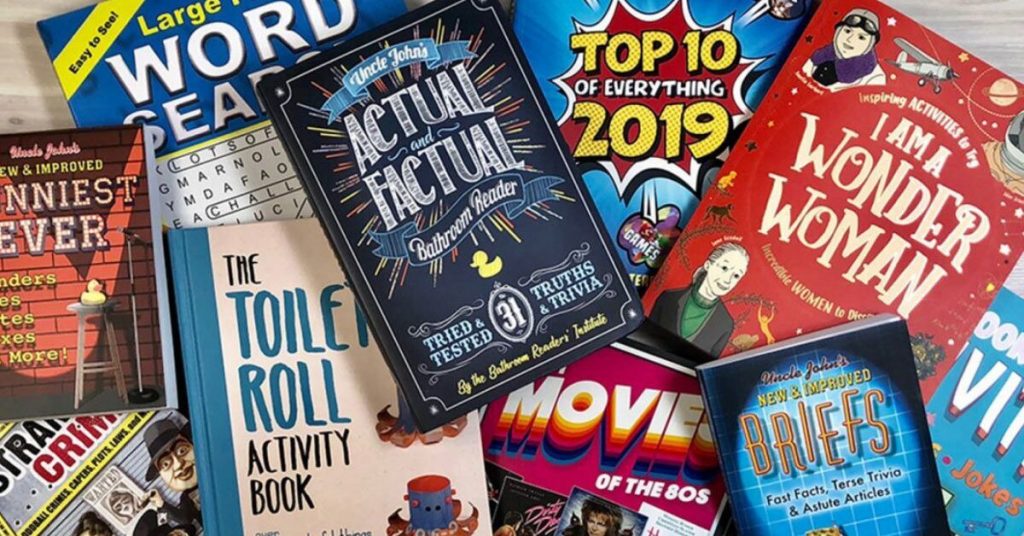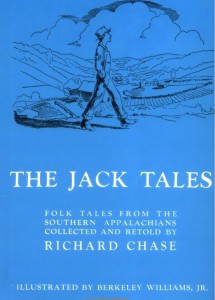From our FaceBook page two days ago, from a recent contest winner:
I want to thank you guys for stirring an old memory, very precious and nearly forgotten. I was reading one of the free books you sent me not long ago (thanks again!), and found the story of the “Jack Tales”, the traditional southern storytelling folklore. My great-grandfather, who was born and raised in Georgia before the *other* turn of the century, used to tell me these stories around 40 years ago, and I might not have thought of them again if not for your book. As I read the article, I was able to read it in his voice mentally. I only wish I could remember all the different stories he told (I know there was one about an island). It really took me back and helped to keep his memory alive. Thank you so much!
Wes R.
Wes, we are so pleased to be able to light that wonderful memory for you, and thank you for thinking to tell us about it. Very nice of you!
The “Jack Tales” story Wes is talking about comes from our very latest annual – Uncle John’s Fully Loaded 25th Anniversary Bathroom Reader (page 388). Here’s the whole story:
Jack Tales
You probably know him best for climbing a beanstalk and killing a giant, but were you aware that Jack—the hero of English folklore—also showed up in the the U.S. South?
Down Home
Following in the footsteps of renowned English folklorist Cecil Sharp, who traveled the back roads of the Appalachian Mountains in 1916 in search of traditional British ballads, a young man named Richard Chase went to southern Virginia to hunt down some folk songs of his own. One day in 1935, after a folk music festival in Raleigh, North Carolina, Chase’s quest took an unexpected turn when a local man named Marshall Ward told him that there were more than just songs being passed from generation to generation—there were tales, too. “Mostly,” explained Ward, “about a boy named Jack.”
Chase realized he’d struck gold—a living oral tradition of storytelling, much as Sharp had discovered the tradition of folk songs two decades earlier. He spent the next several years with Ward and his extended family, listening to Jack tales that they’d been telling for at least three generations, and writing down every word in his notebook as quickly and as faithfully as he could, dialect and all. He collected dozens of stories, including “Jack and the Giant’s Newground,”Jack and the Robbers,” “Hardy Hardhead,” “Jack and King Marock,” and “Soldier Jack.” In 1943 Chase published them in a book called The Jack Tales.
Jack of All Trades
Before arriving in the New World, the legendary Jack was an English folk hero, usually depicted as a brave and honorable young squire. Variations of the character showed up in “Jack and the Beanstalk” and “Jack the Giant-Killer,” as well as in fairy tales and nursery rhymes—”Jack and Jill,” “Jack Be Nimble Jack Be Quick,” “The House That Jack Built,” “Little Jack Horner,” “Jack Frost,” “Jack Sprat,” “Jack in the Box,” and many more. One of the earliest is a 15th-century British tale called “Jack and His Stepdame,” in which the hero is beaten by his stepmother, but shares his food with an old beggar who grants him three magic gifts that help him bring his stepmother her comeuppance.
Fueled by cheaply printed chapbooks, stories of Jack abounded in England in the 1700s. So it’s not surprising that British settlers brought Jack with them to America, mostly relegated to the pages of children’s storybooks. In the isolated hills of Appalachia, Jack thrived as an oral tradition for nearly two centuries—until Chase shared the stories with the rest of the world.
You Don’t Know Jack
The same basic plots showed up in the Jack tales of Appalachia—the biggest difference was Jack himself. Unlike his “proper” British cousin, the American Jack is more like Mark Twain’s Huckleberry Finn. He is an easygoing, overalls-wearing farm boy who aims to make his fortune by relying on wits and luck. Rather than a noble squire who rescues princesses, this Jack, as one tale goes, “tricks farmers out of their barefoot daughters.” He’s not above using unscrupulous means to get what he wants, but his manner is so breezy and likable, it’s hard not to forgive him his escapades.
The American Jack tales are a fascinating blend of two very distinct cultures: Many of the plots, names, and settings are English, but the dialect and attitude are indisputably American. That blend can be heard in this excerpt from “Jack and the Bean Tree,” when the giant totes a shotgun and roars:
FEE! FAW! FUM!
I smell the blood of an Englishmun.
Bein’ he dead or bein’ he alive,
I’ll grind his bones
To eat with my pones!
____________________________________
Here’s a link to the modern version of Richard Chase’s “Jack Tales” at Amazon.
____________________________________
Looking for a Father’s Day gift? Look no further. Our Father’s Day Sale is in full swing. 30% off the entire store and FREE shipping on order of $35 and more. Go directly to our store.









